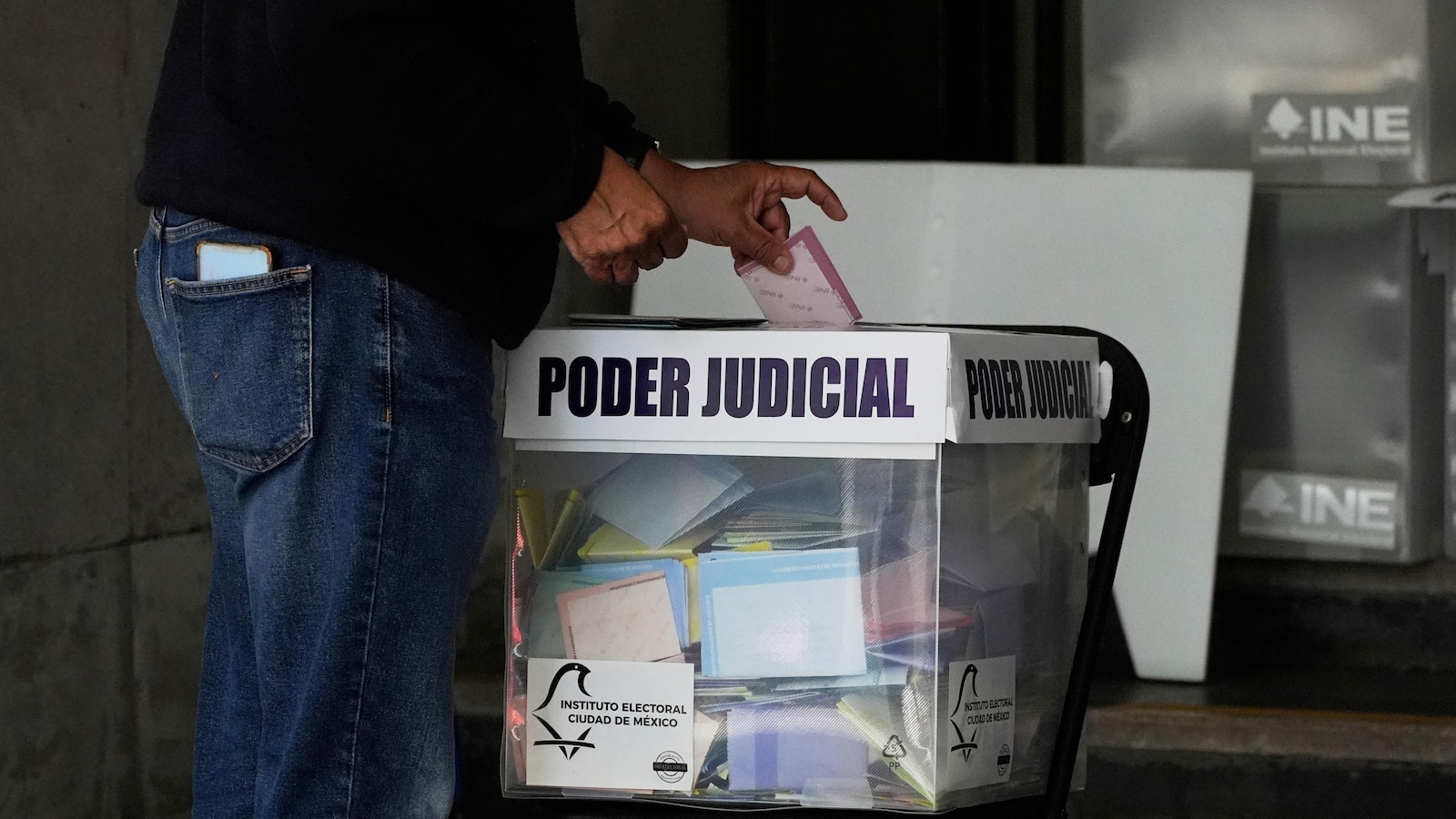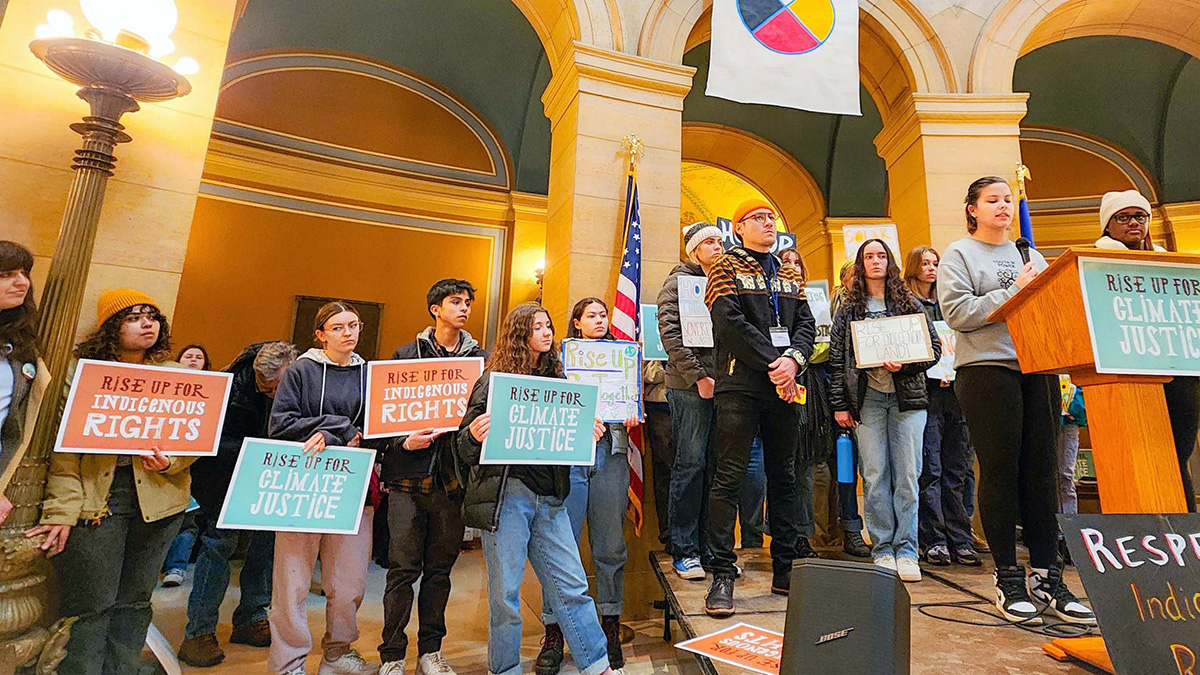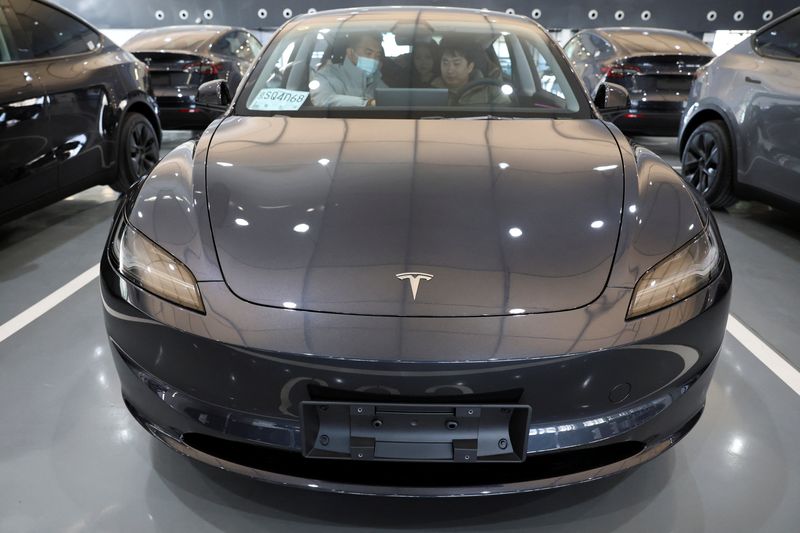[ad_1]
MEXICO CITY — In his marketing campaign for Mexico’s Supreme Court, Hugo Aguilar despatched a easy message: He could be the one to lastly give Indigenous Mexicans a voice at one of many highest ranges of presidency.
“It’s our turn as Indigenous people … to make decisions in this country,” he stated within the lead as much as Sunday’s first judicial elections in Mexican historical past.
Now, the 52-year-old Aguilar, a lawyer from the Mixtec folks in Mexico’s southern Oaxaca state, would be the first Indigenous Supreme Court justice in almost 170 years within the Latin American nation, in line with Mexican President Claudia Sheinbaum. He may lead the excessive court docket. The final Indigenous justice to take action was Mexican hero and former President Benito Juárez, who ran the court docket from 1857 to 1858.
For some, Aguilar has change into an emblem of hope for 23 million Indigenous folks lengthy on the forgotten fringes of Mexican society. But others fiercely criticize his previous, and fear that as a substitute of representing them, he’ll as a substitute stand with the ruling social gathering, Morena, that ushered him onto the court docket.
Supporters cite Aguilar’s lengthy historical past of engaged on Indigenous rights, whereas critics say that extra just lately he is helped push the governing social gathering’s agenda, together with former President Andrés Manuel López Obrador’s large infrastructure initiatives, on the expense of Indigenous communities. Aguilar’s workforce stated he wouldn’t remark till after official outcomes had been confirmed.
“He’s not an Indigenous candidate,” stated Francisco López Bárcenas, a distinguished Mixtec lawyer from the identical area as Aguilar who as soon as labored with him a long time in the past. He applauded the election of an Indigenous justice, however stated “He’s an Indigenous man who became a candidate.”
Aguilar was elected in Mexico’s first judicial election, a course of that is been criticized as weakening Mexico’s system of checks and balances.
López Obrador and his social gathering overhauled the judicial system the populist chief was lengthy at odds with. Instead of appointing judges via expertise, voters elected judges to 2,600 federal, state and native positions. But the vote was marked by a really low voter turnout, about 13%.
López Obrador and his successor and protege President Claudia Sheinbaum claimed the election would reduce corruption within the courts. Judges, watchdogs and political opposition referred to as it a blatant try to make use of the social gathering’s political recognition to stack courts of their favor, and acquire management of all three branches of Mexico’s authorities.
While votes are nonetheless being counted in lots of races, the tally of outcomes for 9 Supreme Court justices got here in first. The overwhelming majority of the justices maintain robust ties to the ruling social gathering, handing Morena potential management over the excessive court docket. Aguilar’s title was amongst people who appeared on pamphlets suggesting which candidates to vote for, which electoral authorities are investigating.
Aguilar scooped up greater than 6 million votes, greater than every other candidate, together with three who presently serve on the Supreme Court. The victory opened the opportunity of Aguilar not simply serving on the court docket, however main it.
Critics attributed his win to Mexico’s extremely well-liked president repeatedly saying she needed an Indigenous choose on the Supreme Court within the lead as much as the election. On Wednesday she stated she was thrilled he was on the court docket.
“He is a very good lawyer,” she stated. “I have the privilege of knowing his work not just on Indigenous issues, but in general. He has wide knowledge and is a modest and simple man.”
The Supreme Court has handed down selections that, for instance, set up the appropriate of Indigenous folks to be assisted by interpreters who communicate their native language and protection attorneys in any authorized course of. But there stay vital excellent points like territorial disputes in circumstances of mega-projects.
Aguilar started his profession in Oaxaca’s capital, working for SERmixe, a company advocating for Indigenous rights as a regulation scholar in his mid-20s.
Sofía Robles, a member of the group remembers younger Aguilar being passionate, selecting to be a lawyer to advocate for Indigenous communities usually dwelling in poverty and out of attain of the regulation.
“He had this conviction, and there were many things he wouldn’t conform with,” 63-year-old Robles stated. “From the very beginning, he knew where he came from.”
Despite coming from a humble working-class household, he would work for the group free of charge after his regulation lessons. He later labored there as a lawyer on agrarian points for 13 years. After the Zapatista rebellion in 1994, a guerrilla motion combating for Indigenous rights in southern Mexico, Aguilar labored to hold out constitutional reforms recognizing the essential rights of Mexico’s Indigenous folks.
Robles stated she believes he’ll deliver that struggle she noticed in him to the Supreme Court.
“He gives us hope,” she stated. “Aguilar is going to be an example for future generations.”
But others like Romel González Díaz, a member of the Xpujil Indigenous Council in a Mayan neighborhood in southern Mexico, forged doubt on if Aguilar would really act as a voice for his or her neighborhood.
Aguilar’s work got here below hearth when he joined the federal government’s National Institute of Indigenous Peoples firstly of López Obrador’s administration in 2018. It was then that he started to work on a mega-project often called the Maya Train fiercely criticized by environmentalists, Indigenous communities and even the United Nations.
The prepare, which runs in a tough loop across the Yucatan peninsula, has deforested massive swathes of jungle and irreversibly broken an historical cave system sacred to Indigenous populations there. Aguilar was tasked with investigating the potential impacts of the prepare, listening to the issues of native Indigenous communities and informing them of the implications.
That was when González Díaz met Aguilar, who arrived with a handful of presidency officers, who sat down for only a few hours along with his small neighborhood in Xpujil, and supplied sparse particulars in regards to the unfavourable components of the mission.
González Díaz’s group was amongst many to take authorized motion towards the federal government in an try to dam prepare development for not correctly learning the mission’s impacts.
The environmental destruction left within the mission’s wake is one thing that continues to gasoline his mistrust for Aguilar.
“The concern with Hugo is: Who is he going to represent?” González Díaz stated. “Is he going to represent the (Morena) party or is he going to represent the Indigenous people?”
[ad_2]



